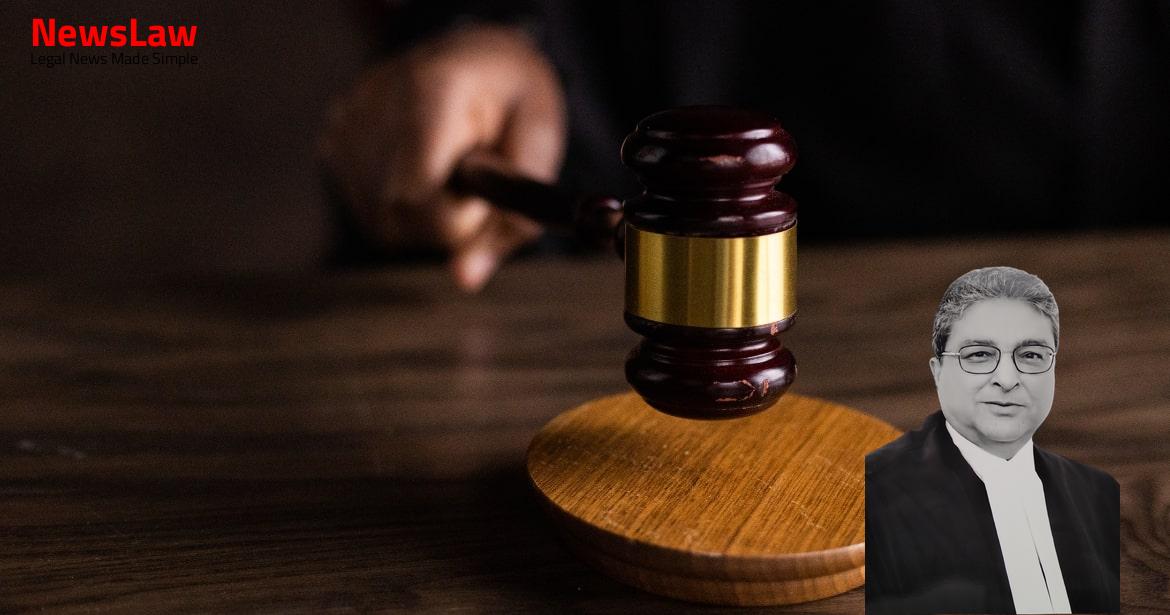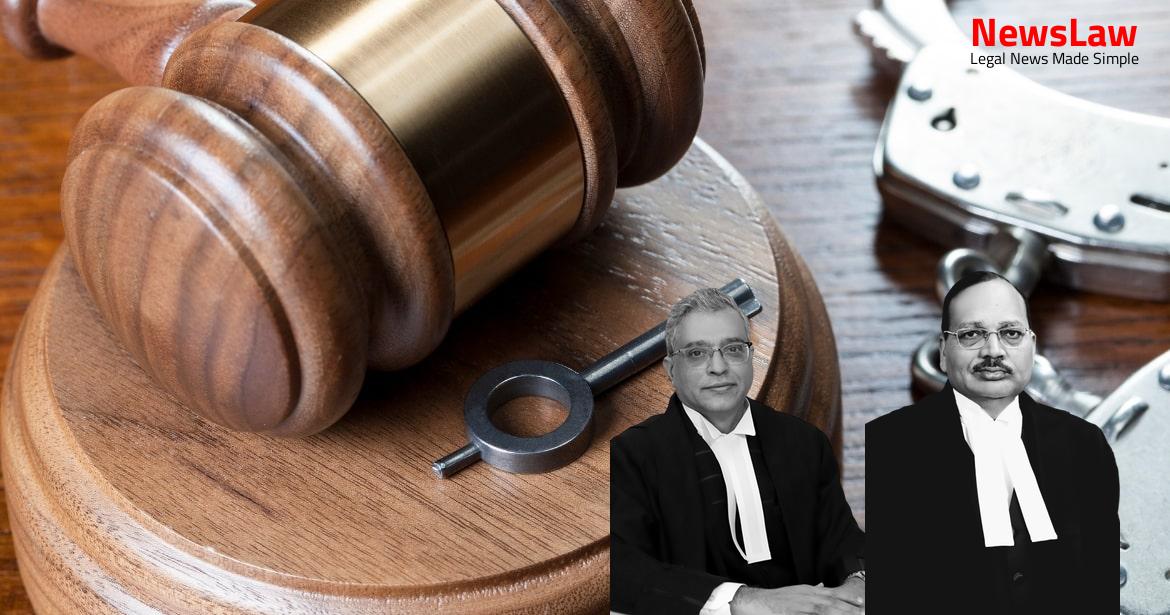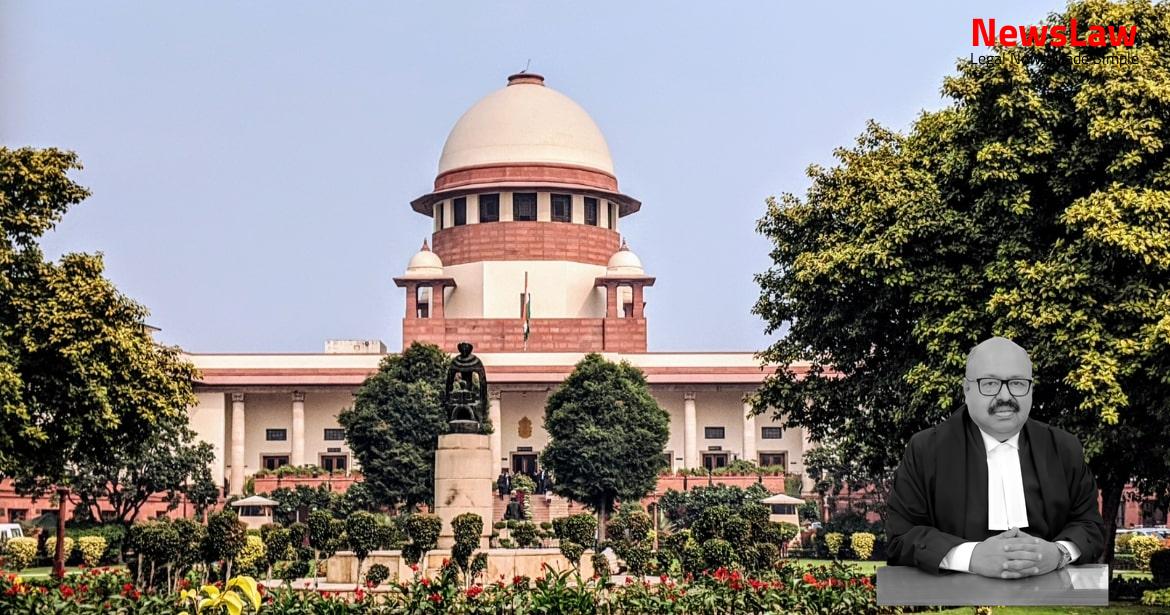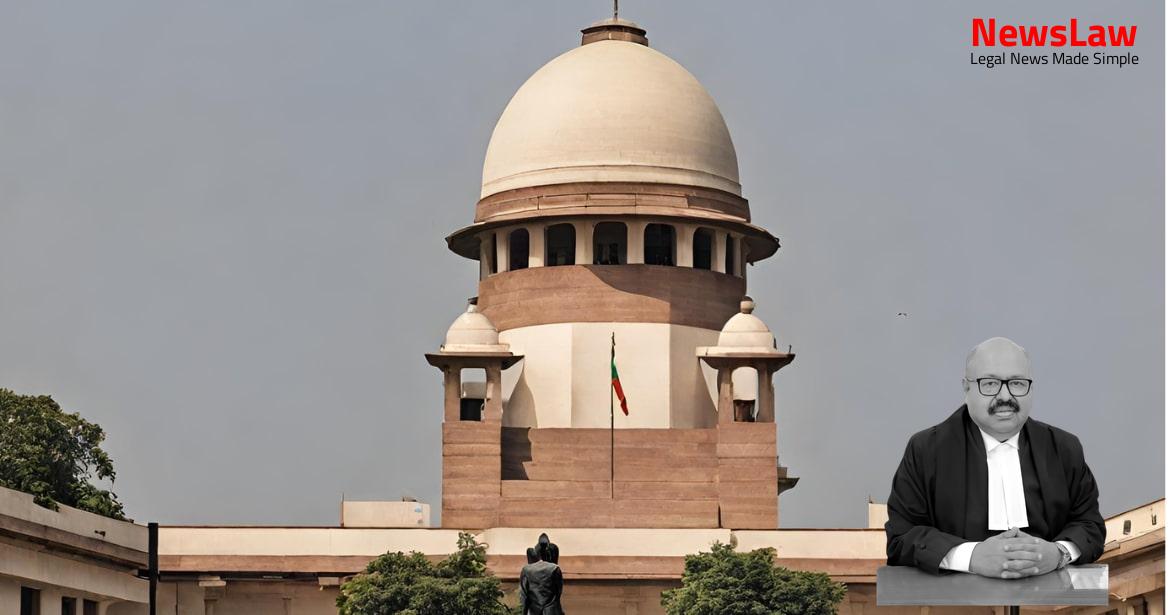In a significant legal development, the Supreme Court of India has issued a judgment on the challenge against tax liability determination. The case involved the appellant disputing the tax liability imposed under Section 115QA of the Income Tax Act. The Court’s decision has far-reaching implications for tax assessments and appeals in similar circumstances. Let’s delve into the details of this landmark ruling.
Facts
- Appellant submitted that the buy back of shares was done under a scheme of arrangement approved by the High Court of Delhi
- Appellant bought back 7,50,000 shares at Rs.35,000 per share for a total consideration of Rs.2,625 crores
- Income tax return filed in 2014 denied liability to pay tax on distributed profits
- Notice under Section 143(2) of the Act issued in 2015 seeking further explanation
Issue
- Whether there is an appellate remedy available for any determination made under Section 115QA of the Act
- To determine if the company is liable to pay additional income tax at the rate of 20% on the distributed income
- Reviewing the possibility of challenging such determinations through an appeal process
Also Read: CRPF Act: Validity of Rule 27 for Compulsory Retirement – Case of Head Constable vs. CRPF
Analysis
- Section 115QA prior to the amendment imposed tax on distributed income to shareholders from buy-back of shares.
- The relevant part of Section 30(1) and Sections 246(1) and 246A(1) were considered in the decision.
- The key expression in Section 246(1)(a) and Section 246A(1)(a) is ‘where the assessee denies his liability to be assessed under this Act.’
- The tax on distributed income is treated as the final payment of tax and no further credit can be claimed for it.
- No deduction is allowed in respect of the income charged to tax under Section 115QA or the tax on it.
- The Court analyzed the provision of Section 115QA of the Income Tax Act which imposes a 20% tax on distributed income during share buy-back.
- The High Court refused to entertain a Writ Petition due to the availability of an alternate statutory remedy, despite the appellant’s argument.
- The Court noted that the denial of liability under Section 246A encompasses the denial of both total liability and liability to tax under specific circumstances.
- The assessment order under Section 143(3) includes demands under all heads, including demands under Section 115QA for additional income tax.
- The appellant’s contention that no right of appeal exists against an order under Section 115QA was rejected by the Court.
- The Court emphasized that the denial of liability under Section 246A does not solely pertain to liability under Section 143(3) but also covers liability under Section 115QA.
- The Court acknowledged the discretion of the High Court to grant relief under Article 226 despite the availability of an alternate remedy.
- The Court highlighted that Section 30 allows for appeals against orders determining liability under Section 115QA, ensuring judicial review of such determinations.
- The judgment addressed the relationship between Section 115QA and appeal provisions, clarifying the appealability of orders related to distributed income during share buy-back.
- The discretionary jurisdiction under Article 226 is not absolute but has to be exercised judiciously.
- The Court may exercise power in extraordinary circumstances like breach of natural justice or improper procedure.
- Non-entertainment of petitions under writ jurisdiction by the High Court when an efficacious alternative remedy is available is a self-imposed limitation.
- The principles laid down in various cases emphasize the discretion of the High Court in entertaining writ petitions.
- When a statutory forum is available for redressal of grievances, a writ petition should not be entertained ignoring the statutory dispensation.
- High Court’s approach and conclusion deemed appropriate with no error found
- Concessions made by Revenue address matters of prejudice
- Appellant has a fuller, adequate, and efficacious remedy through appeal before appellate authority
- Issues related to Section 115QA will be examined by concerned authorities at appropriate stages
- No interference required in judgment and order under appeal
Also Read: DAMEPL vs. DMRC: Curative Petition and Arbitral Award Restoration
Decision
- An appeal was preferred by the appellant ‘without prejudice’ against the demand raised/order passed under Section 115QA on 30.08.2019 within the time limit set by the High Court.
- The appeal will be considered on its own merits and a reasoned order will be passed by the CIT (A) not later than 31st October, 2019.
- The High Court declined to entertain the writ petition against the impugned demand raised by the Revenue under Section 115QA of the Act and granted the Assessee an opportunity to file an appeal before the CIT (A) to challenge the demand.
- The appeal was eventually dismissed and the Special Leave Petition was taken up for final disposal after several adjournments.
Case Title: GENPACT INDIA PRIVATE LIMITED Vs. DEPUTY COMMISSIONER OF INCOME TAX
Case Number: C.A. No.-008945-008945 / 2019



